celebrity radar - gossips
How not to assess Lagos under Ambode
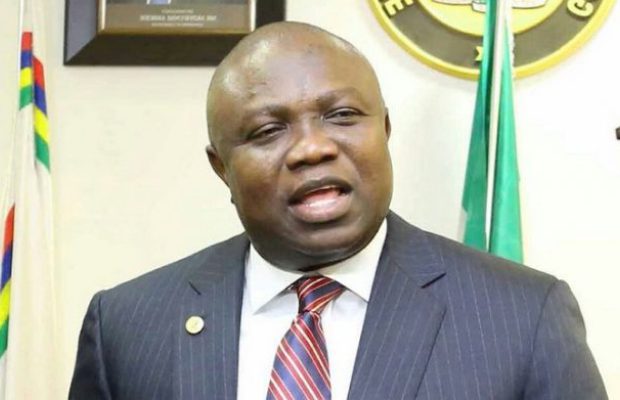
By Niyi Anibaba
I say without any equivocation that this young man who is there now-Akinwunmi Ambode- has raised the stake of performance (in Lagos State) especially in infrastructure.– Olabode George, chieftain of the opposition People’s Democratic Party,( PDP).
About the time strident critics in Nigeria had begun to come to terms with the reality of Lagos as standing out of the pack in an environment of ill-performing states, posting distressing infrastructure-deficit indices, a global body has turned out a report suggesting the contrary. So on the one hand, we have the rare acclaim of a known censurer of the Ambode government; and on the hand we are being offered the partial picture of what is on the ground.
According to the 2018 Global Liveability Index released by The Economist Intelligence Unit(EIU) World Bank, ‘’Lagos is the third worst city to live in.’’ It examined 140 cities and placed Nigeria’s economic and commercial hub at 138, Syria and Bangladesh being the only two lower.
Vienna, the Austrian capital, was ranked the most liveable city in the world. Melbourne in Australia came in second place after a seven-year at number one. Japan’s Osaka came in at third position.
The ranking was based on five parameters: Political and Social Stability, Education, Culture, Environment, Infrastructure and Access to Health. For Infrastructure among the other factors, ‘’the quality of road network, quality of public transport, international links, availability of good quality housing, quality of energy provision, quality of water provision and quality of telecommunications were considered.’’
Interestingly, by the reckoning of a widely-travelled and respected Nigerian financial expert Mr. Bismarck Rewane, these are areas where Ambode’s Lagos has fared excellently. Not known for flippant comments on political and economic matters because of his integrity, Rewane has become a favourite of newsmen on hot-button issues. So when the EIU report came up, he spoke what many have regarded as the objective view.
He criticized the world body for its judgment that Lagos is the planet’s third worst city to choose to live in. It’s an unfair and harsh verdict, Rewane told an interviewer on a leading TV News station operating from Lagos last week. He declared solemnly: ‘’First and foremost, I think the report is subjective and it is based on warped criteria. Certainly, in a survey that says that number 86 is Johannesburg when you talk about crime, terrorism, insurgency and Lagos is 138 out of 140, it’s unfortunate. I feel safer in Lagos than in Johannesburg…I must come out strongly that the EIU …is a bit subjective and does not reflect the truth. Lagos is definitely not the third worst city to live in in the world. I stand by that and I am ready to join issues with the Economic Intelligence Unit whom I respect anyway…’’
His stand tallies with those of most dispassionate observers who have taken keen interest in developments in this state growing by leaps and bounds every day. Adjudged the fastest growing and the fifth largest economy in Africa, Lagos is heading for the 20 million population mark, earnings it the mega polis epithet. That poses inherent security and infrastructure challenges characteristic of such climes.
But that is precisely where to dig deep to find out if the Lagos authorities are aware the world is watching them to know if they are tackling the issues appropriately and in accordance with global best practices. The world has become a small space, any corner of which you can access from the comfort of your room. What happens in your backyard or bedroom is in the world domain, not even public domain. So the world can’t but notice the mammoth activity of urban renewal in Lagos. The entire state has become a veritable construction site, where new roads are either being built or existing ones are experiencing a face-lift via expansion and modernization. And to secure lives, residential and office apartments which have failed safety are being pulled down to make way for befitting centres of commerce and habitation.
The transport sector is similarly being driven to the next level, with the phasing out of the ubiquitous molue. The more appealing luxurious Lagbus fleet are taking over on newly created corridors not only to add aesthetic beauty to the city landscape, but also to deepen the security of commuters.
There is now an unprecedented move by the Ambode government to trash the notorious slums in the state into the dustbin of the past. He has come under attack for attempting what his predecessors dared not to undertake: displacing the huge ghettoes and rickety markets to create for modern and affordable settlements and business centres.
But, as ex-Ghanaian President Jerry Rawlings told complaining compatriots when he was rebuilding Ghana after years of decay, ‘’it is a bitter pill that must be taken for lasting relief’’. Time is proving him right, because Ghana has enjoyed a sane and equable political and economic history since his days. It was a challenge the current generation of Ghanaian would have been battling with if Rawlings hadn’t confronted it then.
I think when reports of the nature under review are coming up, their authors must also consider on-going projects of renewal in societies being assessed. That way, they would avoid producing halfway verdicts of the type being criticized by well-meaning Nigerians. The critics are not those in government or so-called sponsored commentators. They are those who believe the EIU has not been fair to an administration whose members are having sleepless nights in order to make Lagos safe and turn it into a tourism haven as well as the investors’ dream destination.
Anibaba, a journalist wrote from Ikorodu, Lagos State
celebrity radar - gossips
E‑Money’s Grand Gesture: A Closer Look at the SUV Gift to Chinedu “Aki” Ikedieze

E‑Money’s Grand Gesture: A Closer Look at the SUV Gift to Chinedu “Aki” Ikedieze
By George Omagbemi Sylvester | Published by SaharaWeeklyNG
“Public Generosity, Celebrity Loyalty and the Symbolism of Wealth in Nigeria’s Entertainment Elite.”
On Tuesday, February 17, 2026, Nigerian billionaire and entrepreneur Emeka Okonkwo, widely known as E‑Money, once again captured national attention with a lavish and highly publicised act of generosity, gifting a brand‑new 2024/2025 Ford SUV to veteran Nollywood actor Chinedu Ikedieze, affectionately called Aki, during his high‑profile birthday celebration.
The event, held in Lagos amidst a constellation of entertainers, business figures and socialites, was itself part of an annual tradition in which E‑Money marks his birthday (on February 18) with large‑scale giveaways and spectacular shows of material philanthropy. This year, he announced the gift of over 30 cars to friends, staff and family, a gesture that quickly went viral as videos and images circulated across social media platforms.
In the case of Ikedieze, E‑Money’s gift appeared to be deeply personal. During the festivities, E‑Money stood beside his elder brother, Grammy‑nominated musician KCee and recounted how Ikedieze stood by him at his 2007 wedding. The billionaire explained that the SUV was a “token of appreciation” for the enduring support the actor had shown over the years which is a narrative that blends friendship with public celebration.
Ikedieze, a Nollywood staple with a career spanning more than two decades and over 150 film credits, including the iconic Aki na Ukwa franchise, visibly reacted with humble surprise as he received the vehicle, bowing his head in respect and gratitude. The actor later shared the moment on his Instagram account with a caption celebrating the gift, further fuelling online engagement around the event.
Beyond the spectacle, this incident underscores evolving dynamics in Nigerian celebrity culture and the intersection of wealth, influence and reciprocity. Sociologist Dr. Chinedum Uche of the University of Lagos, speaking on the broader implications of such high‑profile gifts, notes: “Philanthropy that is highly publicised can reinforce social bonds, but it also reflects a culture where generosity is intertwined with reputation economy; where giving becomes as much a social signal as it is an act of kindness.” The quote highlights how public acts of wealth transfer among elites serve layered social functions that extend beyond pure altruism.
Critics of such displays argue that ostentatious giveaways, particularly in a country with stark economic disparities, risk amplifying social envy and exacerbating perceptions of inequality. Economist Dr. Ifunanya Nwosu from the Lagos Business School observes: “In societies marked by economic stratification, celebrity largesse may inspire admiration, but it can also inadvertently highlight structural inequities; prompting questions about systemic investment in public welfare versus individual generosity.”
Still, supporters maintain that E‑Money’s annual tradition (which has in past years included cash gifts to his brother KCee, comedians and even domestic staff) reflects genuine gratitude and a commitment to uplifting his immediate circle, albeit within the private sphere.
For Ikedieze, the SUV stands both as a heartfelt gesture from a longtime friend and a public affirmation of their enduring relationship. As the video of the moment continues to circulate, the broader narrative has ignited discussions about the role of private wealth in public life, celebrity culture and how acts of giving are interpreted in contemporary Nigerian society.
In a landscape where influence and generosity often play out in equal measure on public stages, E‑Money’s gift to Aki is more than a headline, it is a flashpoint in ongoing debates about wealth, friendship and visibility in Nigeria’s entertainment and entrepreneurial ecosystem.
celebrity radar - gossips
Spiritual Reality: Wicked People Are Possessed by Wicked Spirits — Dr. Christian Okafor
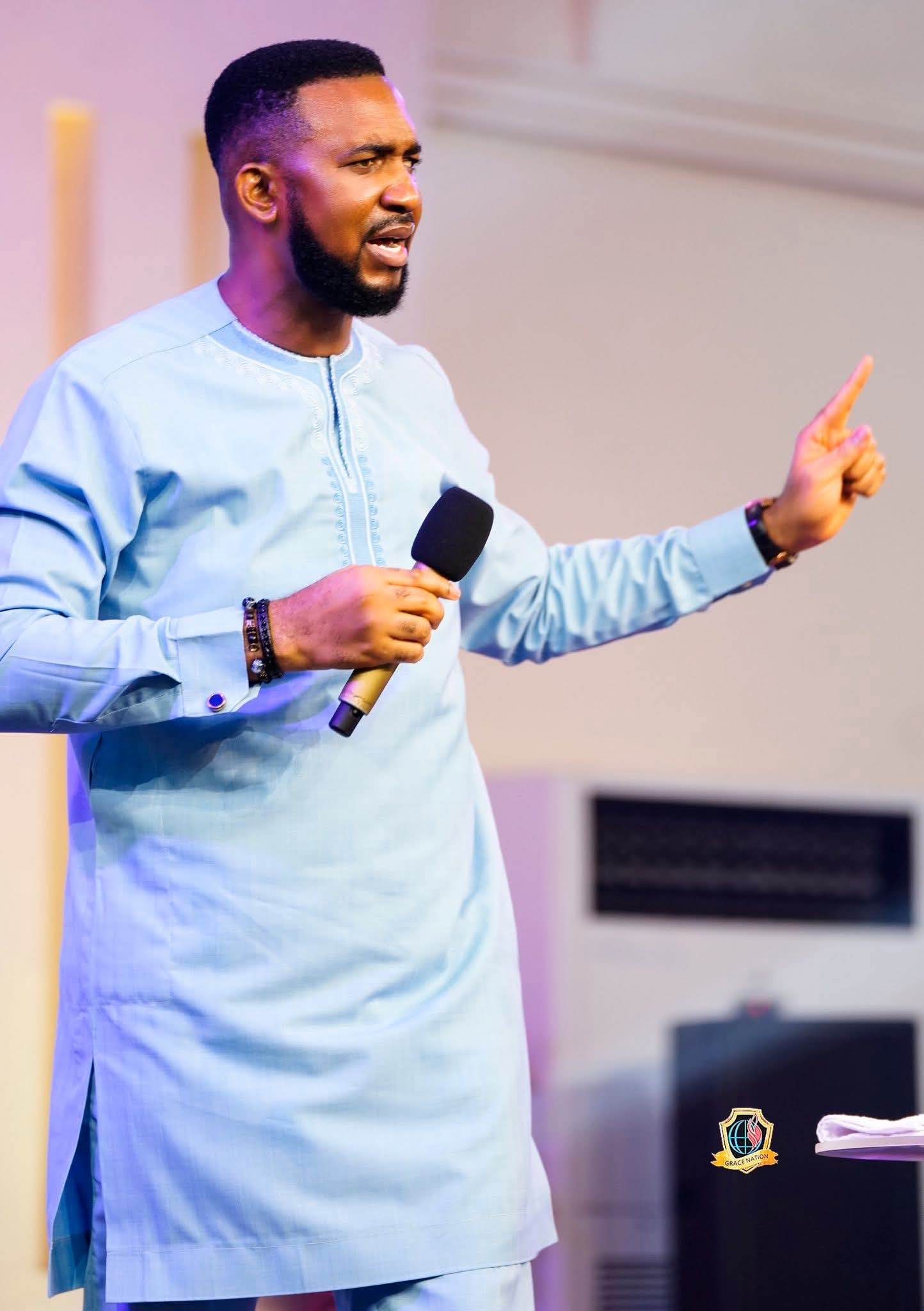
Spiritual Reality: Wicked People Are
Possessed by Wicked Spirits — Dr. Christian Okafor
…..“You don’t need to offend them before they attack you.”
…..“Your only true help comes from God.”
Demons are strategic and calculating. They detect threats quickly and position themselves to resist any power that may expose or overpower them.
According to the Generational Prophet and Senior Pastor of Grace Nation Global, Christian Okafor, spiritual intelligence operates both in light and in darkness—and believers must understand this reality.
Dr. Okafor delivered this message on Thursday, February 19, 2026, during the midweek Prophetic, Healing, Deliverance and Solutions Service (PHDS) held at the international headquarters of Grace Nation Worldwide in Ojodu Berger, Lagos, Nigeria.
The Operations of Demons
Teaching on the subject “Spiritual Reality” with the subtitle “Operations of Demons,” the Man of God explained that when demons possess individuals, their behavior changes. Such people may attack, bully, or resist those sent by God to help them, unknowingly rejecting divine assistance and prolonging their struggles.
“You don’t need to offend a demon before it attacks you,” he said. “What you carry is enough to provoke opposition. The greater your potential, the greater the battle.”
Dr. Okafor noted that many believers misinterpret battles as signs that God has abandoned them. However, he explained that some battles are permitted for growth, training, and divine glorification.
According to him, God may allow certain confrontations so that believers understand spiritual warfare and emerge stronger.
“Some battles are necessary,” he emphasized. “They push you into your turning point.”
He further stated that God does not respond to lies, blackmail, or bullying. He responds to His Word. Therefore, opposition is not proof of God’s absence, but often evidence of destiny at work.
The Weapon Against Demonic Attacks
Addressing solutions, Dr. Okafor described prayer as the strongest weapon against satanic operations.
“Prayer is the license that invites God into your battles,” he declared. “God does not intrude—He responds to invitation.”
According to the Apostle of Altars, understanding the principles and discipline of prayer enables believers to receive divine strategies for overcoming demonic resistance. Without prayer, he warned, spiritual help cannot be activated.
“You cannot receive help without God,” he concluded. “And you cannot engage God without prayer.”
Manifestations at the Service
The midweek gathering was marked by a strong move of the Spirit, with testimonies of deliverance, miracles, restoration, and solutions to various challenges presented before God. Several individuals reportedly committed their lives to Christ during the service.
celebrity radar - gossips
Kingdom Advancement: God Does Not Confirm Lies or Gossip — He Confirms His Word .” — Dr. Chris Okafor
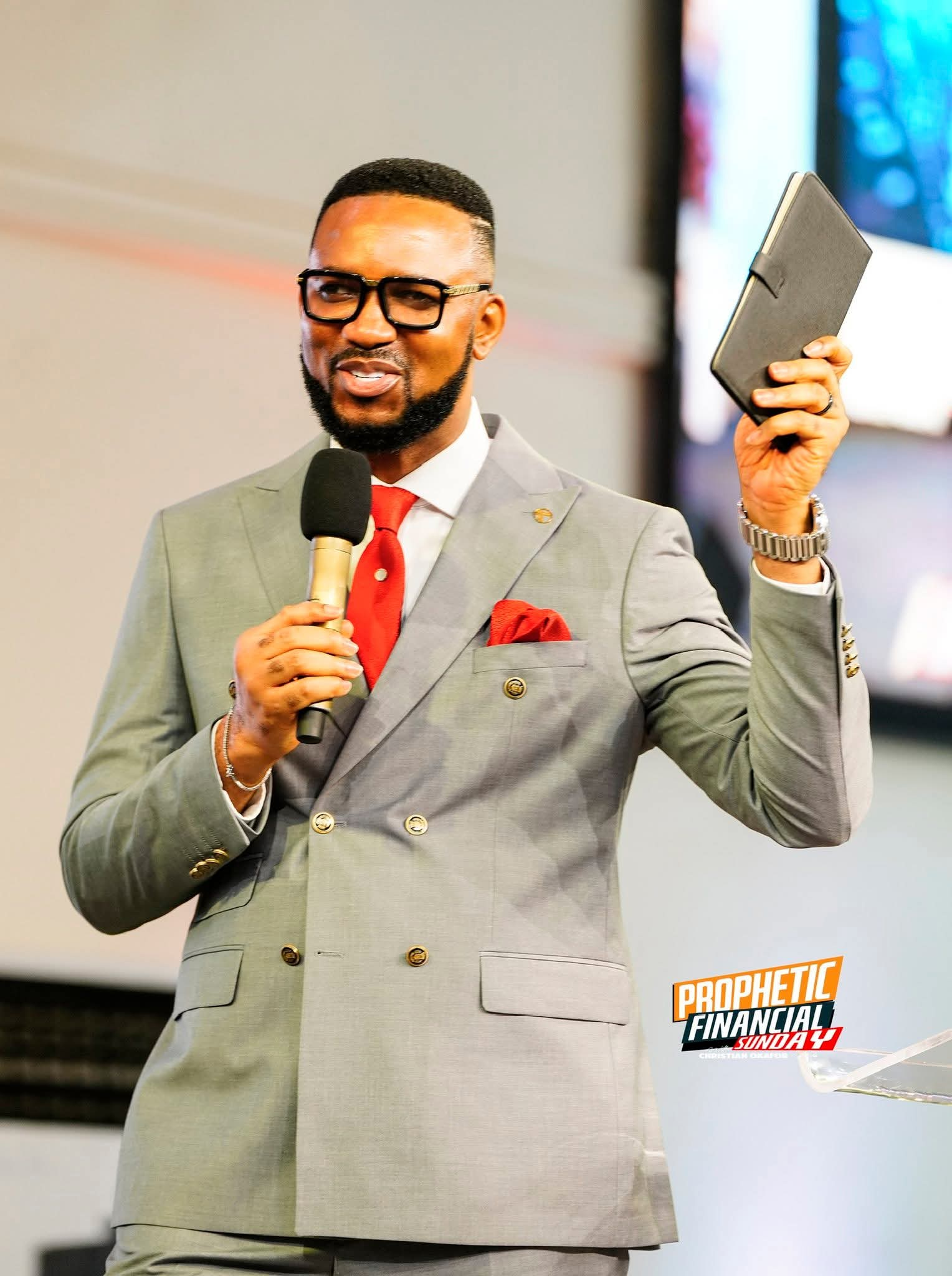
Kingdom Advancement: God Does Not Confirm Lies or Gossip—He Confirms His Word
“When Doing Business with God,
People’s Opinions Do Not Count.”
— Dr. Christian Okafor
The greatest investment any Christian can make is partnering with God. According to the Generational Prophet of God and Senior Pastor of Grace Nation Global, Christopher Okafor, when a believer commits to serving and advancing God’s kingdom, no barrier, lie, gossip, or blackmail can prevail against them.
This message was delivered during the Prophetic Financial Sunday Service held on February 15, 2026, at the international headquarters of Grace Nation Worldwide in Ojodu Berger, Lagos, Nigeria.
Doing Business with God
Teaching on the theme “Kingdom Advancement” with the subtitle “Doing Business with God,” Dr. Okafor emphasized that when a believer enters into covenant partnership with God, divine backing becomes inevitable.
“God is still in the business of covenant,” he declared. “When you make a covenant with Him, He honors the terms. When you win souls into the kingdom and remain committed to His work, He rewards you with what you could never achieve by your own strength.”
The Man of God stressed that God does not confirm lies, gossip, or negative narratives—He confirms His Word. Therefore, anyone genuinely committed to kingdom business should not be distracted by public opinion.
“No matter the blackmail or falsehood circulating around you, if you are focused on God’s assignment, those attacks will only strengthen you,” he stated.
He further noted that a believer’s understanding of God’s covenant determines their experience. “Your mentality about God’s covenant becomes your reality. When you truly know the God you serve, no devil can move you.”
Biblical Examples of Kingdom Partnership
Dr. Okafor cited several biblical figures who prospered through their partnership with God:
Abel
Abel served God with sincerity and offered his very best. His sacrifice pleased God, demonstrating that when a master is honored, he responds with favor.
David
David’s heart was fully devoted to God, and in return, God’s presence and favor rested upon him throughout his life.
Hannah
Hannah made a covenant with God, promising that if He blessed her with a child, she would dedicate him to His service. After fulfilling her vow, God rewarded her abundantly, blessing her with additional children.
Peter
Peter, a professional fisherman, surrendered his boat at Jesus’ request for kingdom work. Through that act of partnership and obedience, he experienced supernatural provision and divine elevation.
Conclusion
In closing, Dr. Okafor emphasized that one’s approach to God’s covenant determines the level of success and prosperity experienced. Commitment to kingdom advancement secures divine confirmation and supernatural results.
The Prophetic Financial Sunday Service was marked by prophetic declarations, deliverance, healings, miracles, restoration, and solutions to diverse cases presented before Elohim.
-

 celebrity radar - gossips6 months ago
celebrity radar - gossips6 months agoWhy Babangida’s Hilltop Home Became Nigeria’s Political “Mecca”
-

 society6 months ago
society6 months agoPower is a Loan, Not a Possession: The Sacred Duty of Planting People
-

 society5 months ago
society5 months agoReligion: Africa’s Oldest Weapon of Enslavement and the Forgotten Truth
-

 news6 months ago
news6 months agoTHE APPOINTMENT OF WASIU AYINDE BY THE FEDERAL GOVERNMENT AS AN AMBASSADOR SOUNDS EMBARRASSING









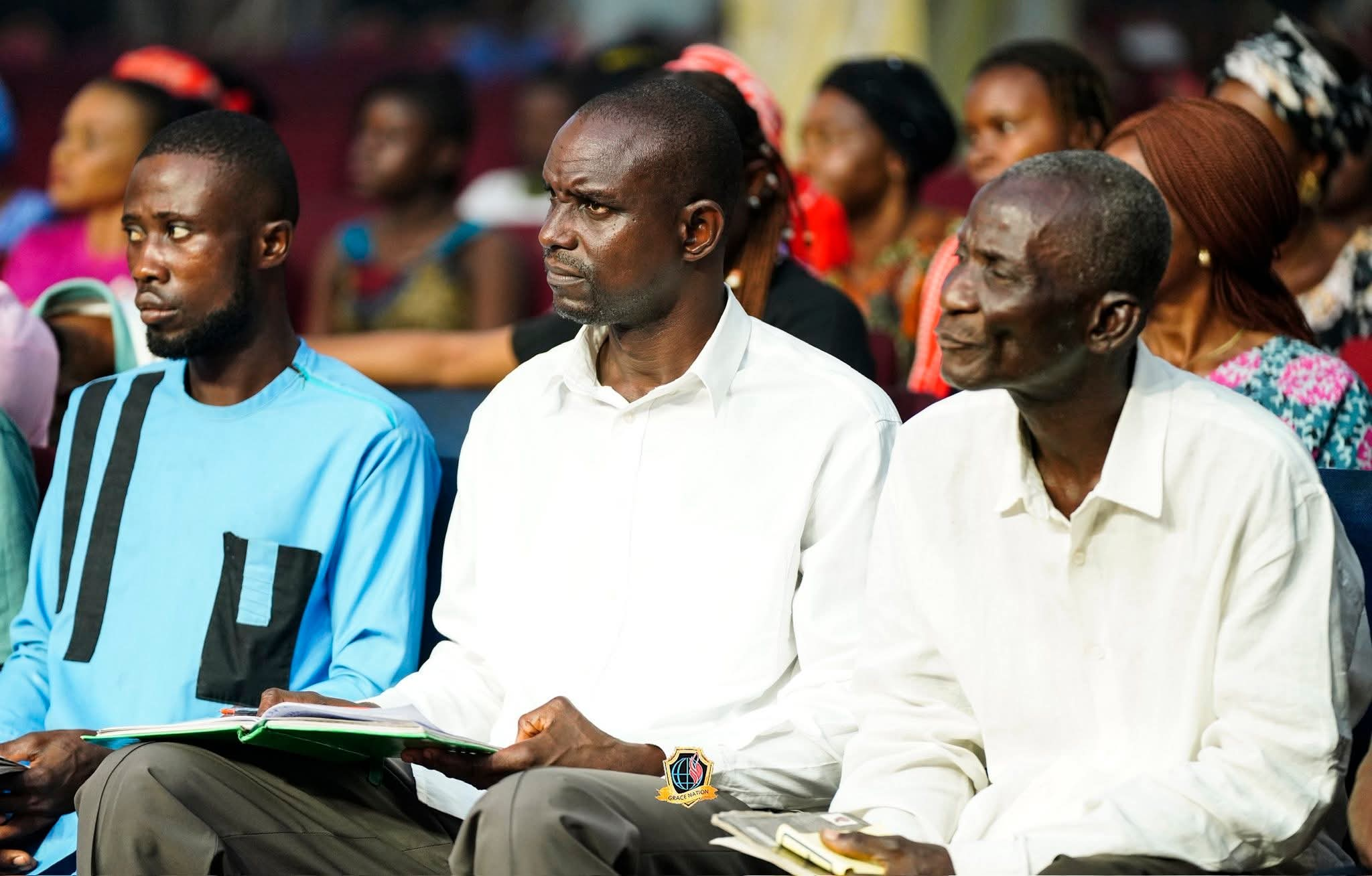
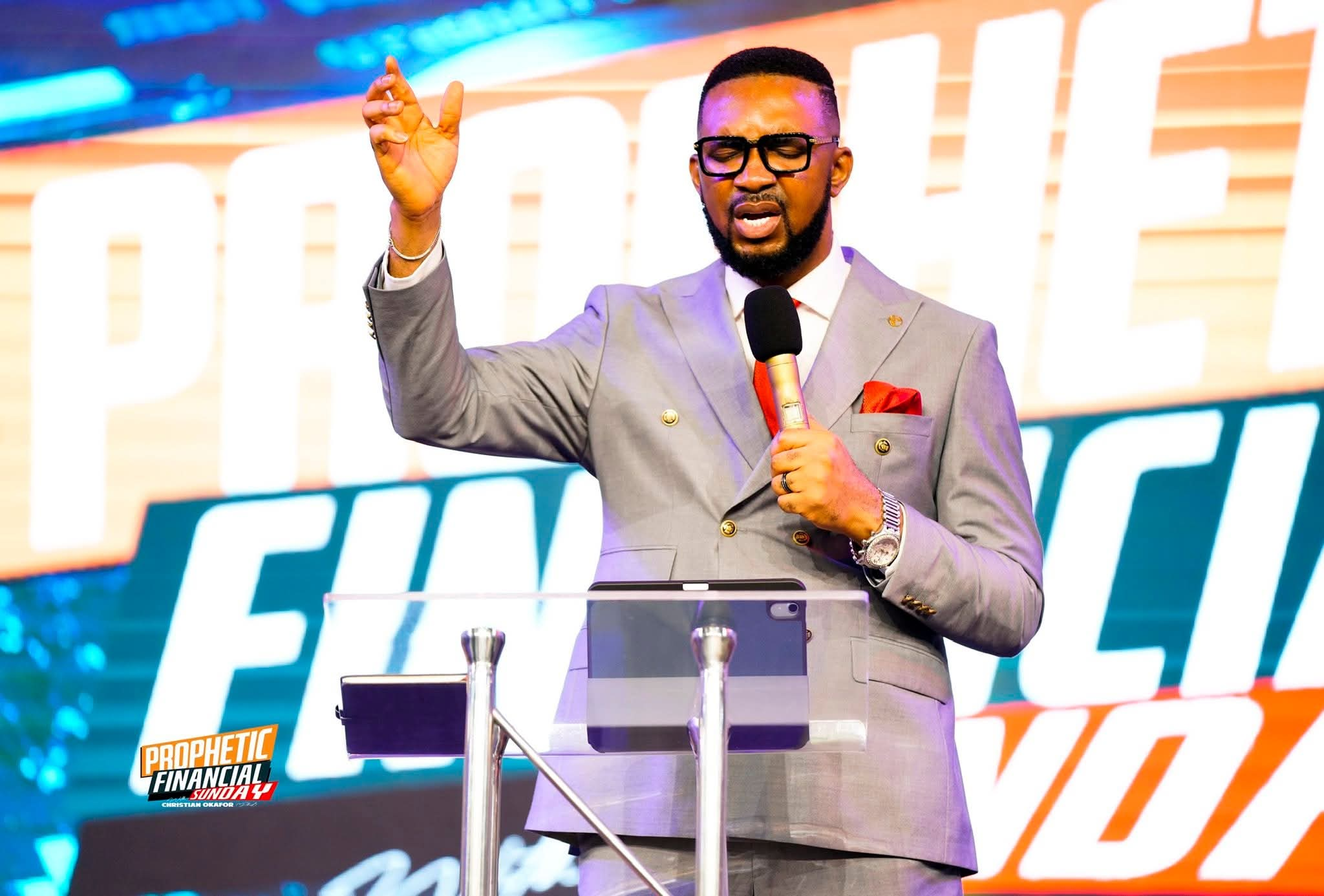
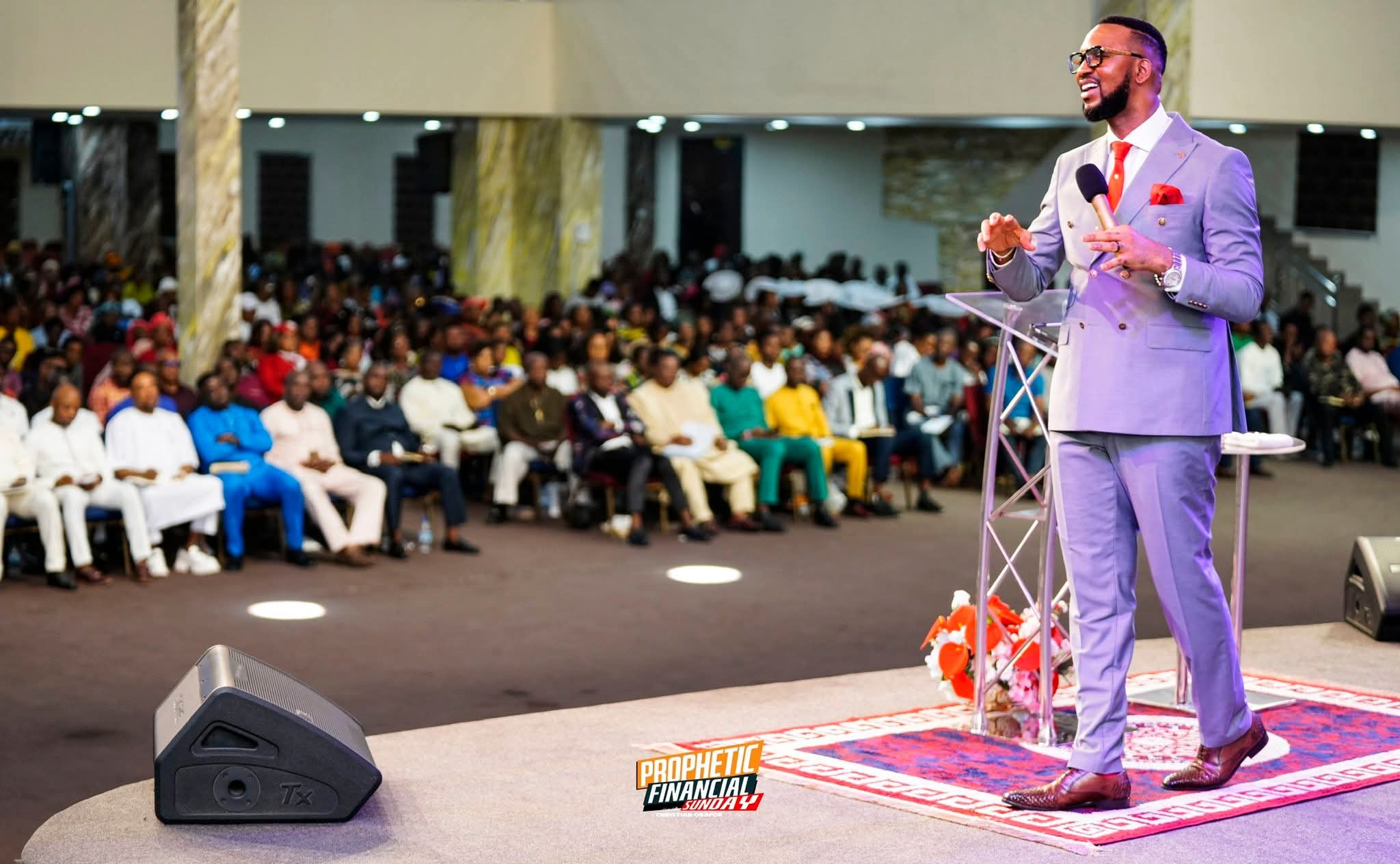
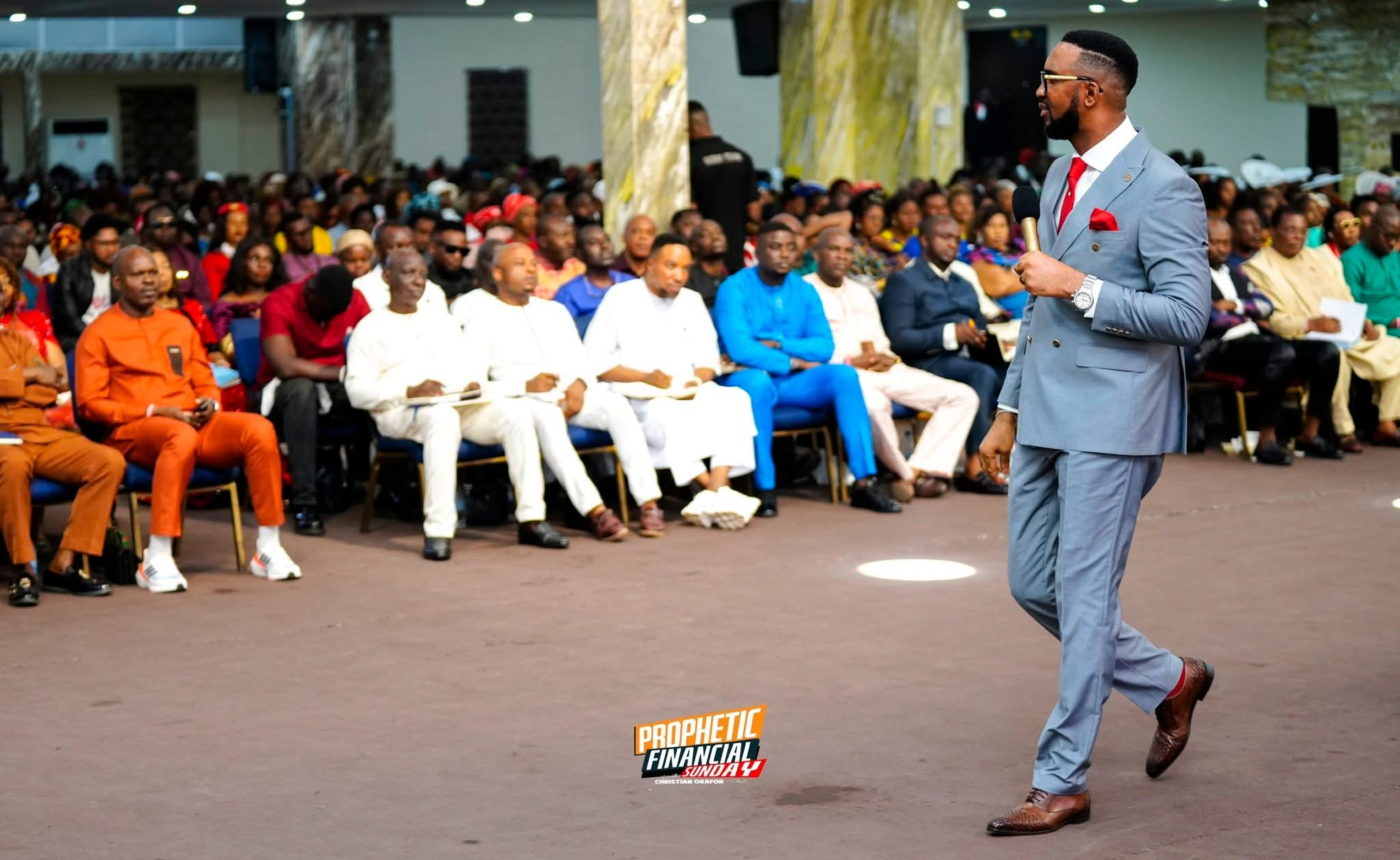

You must be logged in to post a comment Login